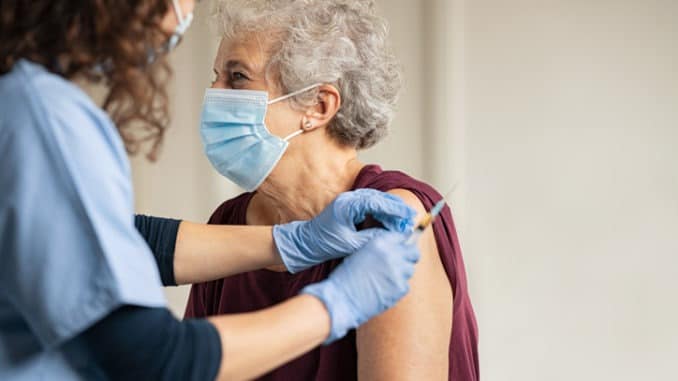
As reported by BBC news, weekly deaths involving coronavirus in England and Wales have dropped 92% since the peak of the second wave in January, according to official figures
Meanwhile, the total number of deaths registered in the UK over one week is five per cent below the five-year average. It comes amid continued efforts to reassure the public over the Oxford-AstraZeneca vaccine’s possible link to rare blood clots.
Figures from the Office of National Statistics showed there were 712 deaths involving Covid in the week ending 19 March, down from 8,945 in late January. The largest falls were seen among the oldest age groups, with deaths falling 92.9% among those aged 80 and over and 93.4% for the 75 to 79 age group, compared to 83.7% for those aged 60 to 64.
Separate figures showed the number of deaths registered in the UK in the week ending 26 March was 11,439, which was five per cent below the five-year average. Last week, deaths were eight per cent below the five-year average. Some 799 of these deaths involved coronavirus.
Adults aged over 80 were the second priority group for vaccination, followed by over-75s and over 70s. The government says everyone in these groups was offered a jab by mid-February.
Figures on Thursday showed the UK’s vaccination programme had recovered after a lull over Easter, with an extra 408,396 second doses administered and 99,530 first doses. The number of people fully vaccinated is now over six million, while 31.8m have received just one dose.
Seeking to reassure people who have received a first dose of the Oxford-AstraZeneca jab, Mr Hancock said there was “no evidence” of the rare blood clots after the second dose of the vaccine.
The UK changed policy on Wednesday to offer under-30s an alternative to the AstraZeneca vaccine, after weighing the benefits of vaccination compared to a potential very rare risk of blood clots.
There had been 79 incidents of the clots and 19 deaths among the 20m Oxford-AstraZeneca doses administered, the UK’s Medicines and Healthcare products Regulatory Agency (MHRA) said. That equates to a one-in-a-million risk of a fatal side effect.
It said there was no proof the vaccine had caused the clots but the link was getting firmer. Both the MHRA and the European Medicines Agency (EMA) said the benefits of the jab outweigh the risks, however.


Be the first to comment